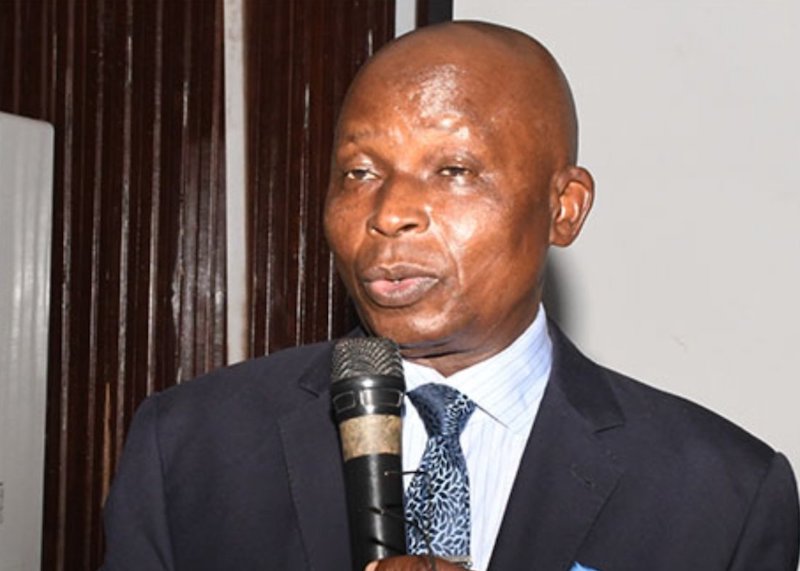OrderPaper Nigeria has posited that the Bola Tinubu administration will exert the highest influence and impact on the National Assembly in the history of the country’s presidential democracy in a way that either strengthens the legislature or reinforces its widely perceived rubber stamp status.
The report, which focuses on the transition of politicians ‘From the Legislature to the Executive (FLEX), is a niche edition of OrderPaper’s Quarterly Policy Review (QPR) series. The FLEX edition establishes that the character and composition of the Tinubu government are defining factors not only of its relationship with the National Assembly but also the legacy of governance and democratic imprints the president will leave behind in office.
At the sub-national level, the report identifies ten state governors elected into office from the National and State Assemblies, thereby creating a common denominator for a specialised performance rating regarding governance and relationship with their state legislatures.
The report reveals that 22 out of the 48-member federal cabinet appointees were members of the National or State Assemblies, thereby giving President Tinubu the record of transitioning the largest number of politicians from the legislature to the executive in one fell swoop.
Besides the fact that President Tinubu and Vice President Kashim Shettima are both FLEXes themselves (having both served in the Senate at various times), the President has a horde of other appointees with cognate legislative background and experience. These include Femi Gbajabiamila, his Chief of Staff, the immediate past Speaker of the House of Representatives, and George Akume, Secretary to the Government of the Federation (SGF), who served three terms in the Senate. Instructively, both positions are perhaps the most critical statutory organs of the presidency that can facilitate the optimal delivery of the vision, goals and manifesto of the Tinubu administration.
In line with tradition, President Tinubu’s two liaison officers to the National Assembly, Abdullahi Abubakar Gumel and Ibrahim Olarewaju Kunle, who officially serve as presidential aides to the President on National Assembly Matters (Senate and House of Representatives respectively), are FLEXes.
Going by these, OrderPaper, Nigeria’s foremost independent parliamentary monitoring organisation and policy think tank that bridges the gap between people and parliament, asserts that the FLEX phenomenon will play defining roles in determining President Tinubu’s legacy concerning service delivery and democratic consolidation.
According to the QPR report, a knowledge product of OrderPaper, the legacy of 10 state governors, like that of President Tinubu, will also be substantially determined by the fact of their transition from the legislature to the executive branch of government.
The state governors are Ahmadu Umaru Fintiri of Adamawa; Bassey Otu of Cross River; Umar Bago of Niger; Sheriff Oborevwori of Delta; and Bala Mohammed of Bauchi. Others are Douye Diri of Bayelsa, Hope Uzodimma of Imo, Ademola Adeleke of Osun, Francis Nwifuru of Ebonyi, and Uba Sani of Kaduna. In addition, there are three deputy governors of Bayelsa, Bauchi and Akwa Ibom, which produced the lone female FLEX in the class of governors and deputies.
In a statement, Oke Epia, Founder/Executive Director of OrderPaper Nigeria, said the FLEX report delves into critical but hitherto unexplored facets of Nigeria’s governance architecture and sheds light on the intricate dynamics between the legislature and executive branches of government, adding that the work presents a challenge to academics and research institutions, policymakers, media practitioners and public analysts, among others, to deep dive into the phenomenon in a bid to enhance governance and democracy in Nigeria.
“FLEX is our modest contribution to the quest for democratic accountability in Nigeria, laying a solid and objective basis to not only gauge the democratic temperament of the current administration, specifically in its checks-and-balance relationship with the legislature, but also measure the ongoing stewardship and legacy of President Tinubu and the state governors concerned,” Epia said.
Revealing that OrderPaper will partner with relevant stakeholders to establish FLEX as a viable performance-tracking platform, he announced that the publication can be accessed online via https://orderpaper.ng/flex/
In a foreword by Rt. Hon. Samson Osagie, the former Minority Whip of the House of Representatives, commended OrderPaper for the novel work, saying, “this publication unarguably, given its unique analytical focus, represents a unique perspective into studying and evaluating the implications of some developments in the polity that have hitherto escaped the attention of public affairs analysts and even academics.
“This is undoubtedly a commendable contribution not only to the advancement of knowledge but to the deepening of the understanding of the dynamics that characterise the growth of democratic governance in Nigeria and OrderPaper’s submission on the populace’s huge expectations for a positive impact on governance is well placed.”
Similarly, Dr Dakuku Peterside, former Member of the House of Representatives and ex-DG/CEO of Nigerian Maritime Administration and Safety Agency (NIMASA), challenged FLEXes to live up to public expectations by bringing their “experience and exposure in parliament to smoothen relations between branches and advance the delivery of policy outputs that fulfil democratic dividends,” and not “become instruments of wilful and inordinate subjugation of the legislature and, by extension, undermine the core principles of separation of powers and checks and balances upon which modern-day democracy is built.”




